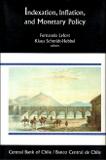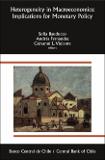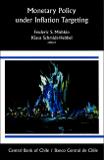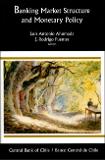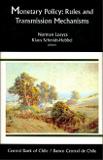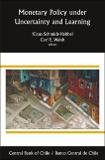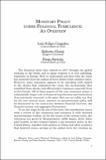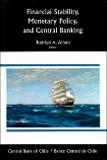Buscar
Mostrando ítems 1-10 de 16
Indexation, inflation, and monetary policy
Although indexation policies and practices are common in many markets and economies, their implications for market efficiency and price stabilization remain controversial. This book contributes to the literature on indexation and inflation by including nine articles that are at the research frontier ...
Heterogeneity in macroeconomics: implications for monetary policy
There is important heterogeneity among households, firms, and banks; and the way shocks or policies affect these agents depends critically on that heterogeneity. There was a rapid surge in the awareness of academic researchers and policymakers of the nexus between heterogeneity and monetary policy, ...
Capital mobility and monetary policy
The papers that comprise the different chapters of this volume were presented in the XVII Annual Conference on Central Banking that took place at the Central Bank of Chile, Santiago, during November 14 and 15, 2011. While the global economic environment has changed considerably from the end of 2011 ...
Monetary policy under inflation targeting
Inflation targeting cum exchange-rate floating has become the framework of choice in countries pursuing an independent and effective monetary policy. Since its adoption by New Zealand (1990) and Chile (1991), central banks of nearly 25 industrial and emerging economies have implemented an explicit ...
Banking market structure and monetary policy
This volume contains several macroeconomic and microeconomic works on the subjects of monetary policy transmission and the regulation of the banking industry. The reason to consider both issues in the same volume lies in the fact that some channels whereby monetary policy reaches the real sector hinge ...
Monetary policy: rules and transmission mechanisms
Monetary policy must consider the bidirectional relationship between the economy and its central bank. It should therefore address two essential questions: first, how changes in the economy induce a reaction by the central bank, and second, how these policy changes are in turn transmitted to the ...
Monetary policy under uncertainty and learning
Huge swings in oil, food, and other commodity prices and the global financial crisis are at the core of current monetary policy discussion. The latter events are vivid reminders of how uncertainty, imperfect knowledge, and the need to learn affect macroeconomic behavior and the conduct of monetary ...
Monetary policy under financial turbulence
The financial crisis that started in 2007 brought the global economy to the brink, and in many respects it is still unfolding, especially in Europe. While a fierce debate continues on how to understand and deal with the crisis, a consensus is emerging with regard to the originating shocks, the mechanisms ...
Financial stability, monetary policy, and Central Banking
The financial developments of the last decade have had a large impact on the range of risk diversification contracts available to investors. Based on these complex instruments, the investment possibility frontier was shifted outward and increasingly intricate networks were created. At the same time, ...
Monetary policy through asset markets: lessons from unconventional measures and implications for an integrated world
The global financial crisis of 2008 and its aftermath brought many new challenges for the world’s central banks. These new challenges have resulted, in turn, in bold experimentation—not just the vigorous application of traditional policy tools, but the use of new ones, or at least ones that were rarely ...

